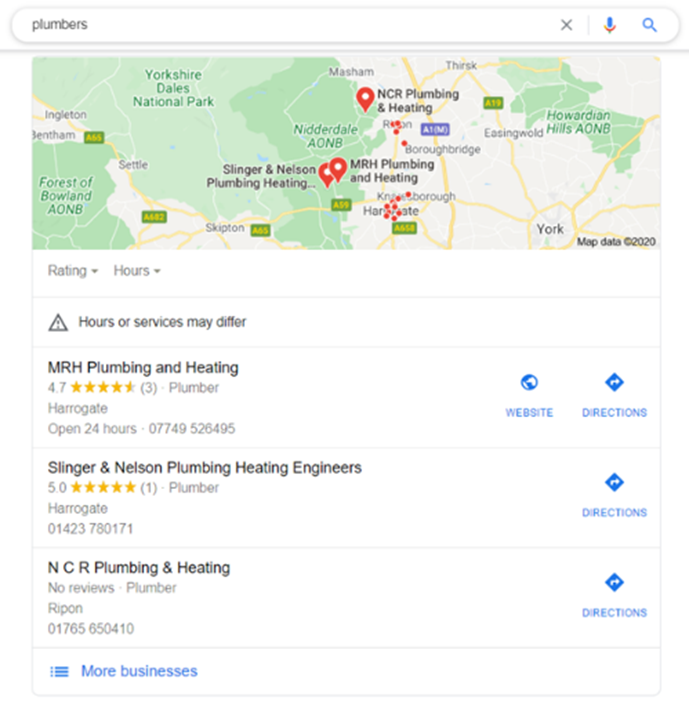Digital Transformation: What Online Opportunities Are Available To You?

2020 sparked transformation in the UK. With more than 750,000 businesses forced to close their doors under COVID restrictions, companies in nearly every industry have had to adapt. In many cases, this has accelerated their digital transformation to meet growing online demand.
Such huge changes in consumer behaviour have prompted changes in industries where digital may not have been the top priority pre-pandemic. As a result, many have doubled down on their digital investment in an attempt to leverage new opportunities.
In this blog, we discuss what digital opportunities are available to your business and how you can take your digital transformation to the next level.
Recognising digital opportunities
In light of last year’s events, those who weren’t as digitally focused have awoken to the opportunity digital presents and the need for online visibility in order to compete. In many cases, COVID hasn’t created these opportunities for traditional industries – the scope has always been there. Instead, it has simply forced companies to become more agile and highlighted the commercial opportunities digital marketing holds.
Most industries have been affected by the pandemic in one way or another. But we have seen considerable interest in increasing digital footprints from professional services such as accountants, healthcare providers and lawyers, alongside trade businesses too such as builders merchants.
Digital adoption within business has been accelerated, even where digital transformation may not have been on the radar or central to previous growth plans. The power of your website and digital channels are now being considered more seriously. COVID has increased online performance for many and you may now be looking to maximise this and gain share of the online market.
How do you sustain the increase in online leads your business has experienced? How do you find your online audience and how do you seek new opportunities? These questions could be causing you to rethink your digital budgets.
What is the right digital marketing strategy for you?
To really get the most from digital, it’s important to consider the channels and strategies that could work best to help you achieve your business objectives. As lead generation is often the most common goal of traditional industries, a focus on core digital tactics such as PPC and SEO alongside localised strategies is often the best place to start.
Paid media: Immediate visibility
When you want to generate leads, paid media advertising can help. A winning factor of PPC is the fast ROI it can generate, allowing you to find and target opportunities almost instantaneously.
Audience-led PPC is highly effective for traditional businesses as they typically want to target a very specific type of user. Targeting based on search intent, your business will be connected to the right people at the right time to generate maximum conversions.
Even better, PPC provides an abundance of data which is the foundation to great digital marketing. Armed with this data, you can build your business case to support further investment in digital channels considering key metrics such as ROI, conversion rates, cost-per-acquisition, cost-per-click and click-through rates and much more. You can even gain insight on your competition!
Local strategy: Promote your business to local audience
Did you know that 86 percent of people rely on Google to find a local business while 29 percent search for local businesses at least once a week?
When you think of a local strategy, you may believe it only applies to local independent businesses such as beauticians and plumbers. But local SEO is for any business with a local presence – you could be a car dealership with premises up and down the country, or a builders merchants with stores in numerous towns or cities.
A localised strategy can help you attract a nearby audience. Even during rolling lockdowns, many people still find comfort in working with a local business. For example, if you’re in need of a solicitor, it’s likely you would still reach out to a firm in your surrounding area even though you’re currently unable to visit their premises. Or, while sourcing specific products, customers have been leveraging click and collect functionality in their nearby towns.
Considering local strategies puts you in a stronger position to compete. If someone is searching for a local supplier, preference is given to Google’s Local Pack (shown below) by placing these results at the very top of the search results. Considering local SEO on-page factors such as title tags, H1 tags, URL, landing page content and image alt attributes alongside targeting relevant localised keywords will all help your business succeed as part of a localised strategy. The same mentality can also feed into your PPC campaigns.

SEO: Sustainable success
SEO is key to sustainable results. While a return is not as instantaneous as PPC, SEO will usually prove more cost effective in the long-term.
The core reason for SEO is to optimise your website to improve your position in the search engine results pages (SERPs), elevate your online visibility, increase traffic to your website. When done effectively, this traffic provides leads, and these leads turn into sales. Even better, SEO is a sustainable way to support digital visibility for months or even years to come.
However, with Google’s regular algorithm updates, thousands of new websites launched daily and continuous changes in customer behaviour, SEO is a constantly moving target. To succeed in the organic space requires ongoing optimisation and often a bit of time before the full impact can be seen in your performance.
In light of this, PPC and SEO often work best hand in hand. Deploying a long-term SEO strategy and supplementing it with the immediacy of PPC can maximise exposure while your organic rankings are being built. Not only does this ensure your budget is being spent in the most efficient way possible, but your paid success can also help you build a business case to release more budget for your digital marketing.
In the long term, learnings can be applied from one channel to another as a way of boosting performance where one is weaker. Bolstering SEO efforts further, digital PR and outreach could also be introduced to grow brand awareness and your online authority, giving you an even better chance of ranking high in the search engine.
As an SEO agency, we have deployed this multi-service approach for a number of brands including Shelbourne Motors and Hammonds Furniture, combining the optimum mixture of channels to drive their digital performance.
EAT content
Following a major Google update in 2018, EAT content came onto the scene and became a significant ranking factor. Google’s Search Evaluator Guidelines specify that this update revolves around providing high-quality content that captures search intent. At its core, it’s about showing a level of expertise, authority and trust (EAT) within the content displayed on your site.
So, who does it effect? The EAT update impact all websites, however, it has most significantly impacted those in Your Money or Your Life (YMYL) sectors which often sit in more traditional industries. It essentially applies to those whose products and services can have a personal impact on an individual’s life – such as finance, insurance, legal, housing and medical – making it hugely important that Google works to display content from authoritative businesses that is trustworthy, up to date and answers search intent. This is where the EAT content can help.
Written solely to satisfy your audience’s burning questions, EAT content involves demonstrating your expertise, authority and trust within a specific topic to help rank you higher in the SERPs.
- Expertise: Considering the volume and depth of your content, if it’s sufficient for the topic and whether it has a clear purpose for the reader.
- Authority: Preventing sites from claiming to be authoritative in areas they are not, this area of EAT considers the authority of the writer and site owner to ensure accuracy and credibility.
- Trust: Based on the reputation signals of your website, it’s important that your EAT content follows the accepted consensus of a topic to instil trust in your readers.
Digital transformation and your business
Opportunities are rife for businesses looking to make their mark in the digital world. Last year made it clear that a digital presence was no longer a nice to have, but a must have.
We’ve worked alongside a number of businesses rooted in traditional industries including Burton Roofing and Anglia Tool Centre as we support them in driving their digital performance. Now it’s time for the competition to play catch up!
Are you wondering what potential digital marketing holds for your business? Get in touch with our team of industry experts to find out more about digital transformation and how we can help you succeed online.